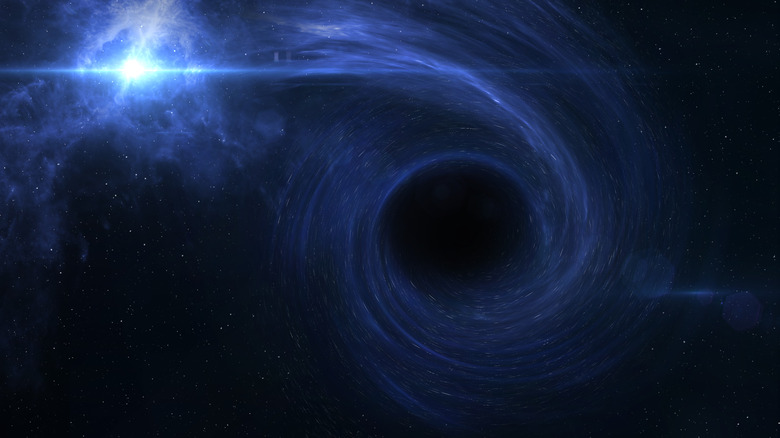Why Scientists Still Can't Explain Dark Matter
Many mysteries of the universe still escape even the world's brightest minds, and there are few mysteries bigger than dark matter. A theory rather than a confirmed entity, dark matter is an answer to the question of where the universe gets its mass. According to CERN, gravity in space acts in a way that suggests there are large quantities of invisible mass. This mass has been labeled dark matter, and if it does exist, it would be the most common form of mass in the universe, making up 65-85% of the cosmos.
So the theory goes, but dark matter raises more questions than it answers. Studying something that can't be seen or properly measured obviously comes with its own challenges, and despite it being a long-standing hypothesis, there is no settled explanation as to what dark matter actually is. In fact, so little is known about this entity that supposedly holds galaxies together that some scientists are questioning its existence entirely.
New research could disprove the dark matter theory
According to NBC News, new research might disprove the long-held theory of dark matter. A team of scientists reported a unique gravitational effect across distant stars that suggests our understanding of gravity is incomplete. In time, when our understanding of gravity is more comprehensive, clouds of dark matter thought to hold galaxies together might give way to new mathematical equations.
Still, the dark matter theory is not completely disproven, and there are some theories as to what the mysterious substance could be, such as neutrinos or primordial black holes. But a rival theory developed in the 1980s called the modified Newtonian dynamics theory, or MOND, has gained credence by the recent findings. The theory suggests that Isaac Newton's original theories concerning gravity were not entirely accurate, which would explain the discrepancies without including dark matter. Though dark matter is still the more popular hypothesis, and MOND is far from foolproof, the tides of science might be changing.

